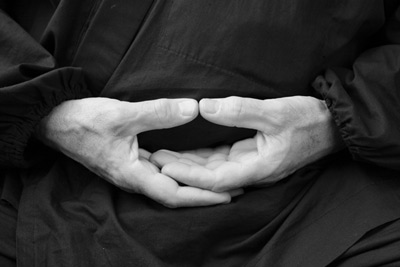


A bit shy or perplexed? Don't worry: with patience, discipline, and perseverance Zen meditation will achieve wonders in your mind and body.
What is Zen?
The time has come for you to discover and enjoy the wonders of Zen Buddhism and Zen meditation. Zen means meditation in Japanese. Zen was created around 500 CE in China. It is a branch of Buddhism created by the Buddha (nickname for the awakened one) around 2500 years ago after 50 years of verbal teaching. Meditation is the core of Zen practice and reading zillion books on Zen will never help you in your spiritual journey.
Zen Buddhism is a philosophical way of life that will bring you serenity and inner peace for the rest of your life. Because of its simplicity and non-dogmatic approach, it is one of the fastest-growing religions around the world. Zen Buddhism does not have any gods, beliefs, doctrines, concepts, opinions, or judgments. Anyone can practice regardless of her/his race, ethnic group, or religion. Simple earth common sense is the rule.
Having a Zen Mind is being mindful moment to moment of what is REAL and being indifferent to what is not. What is REAL is what we see, hear, touch, smell, taste, our body, what we are doing and your surrounding IN THE PRESENT MOMENT …with no thought, no judgment, no concept, no idea, no opinion attached since most of them are either an illusion or a deceptive trap created by our ego-centered mind.
Think about this: You will become a Zen practitioner when you will be able to differentiate the REAL from the rest. It takes practice, practice, practice under guidance. It takes also discipline, patience, perseverance, time, and - above all a non-judgmental approach to your progress. Zen practice associates the following
1- Practice of daily meditation + weekly group practice. Meditation is the core of Zen.
2- Being mindful of 1) What is real and letting go of what is not. 2) Our 5 senses. 3) What we do. 4) What do we think. 5) Our environment including people.
3- Proper understanding such as:
4- Proper behavior including:
Generosity, compassion, patience, perseverance, love, ethical attitude, concentration, meditation, and wisdom.
What is the purpose of Zen?
What is Zen practice?
"Zen practice is bringing our mind and body together in the present moment to reflect mindfully and without judgment on living beings, events, and surroundings as they are in reality and not as our ego-centered thoughts want them to be".
Zen meditation is the simplest form of meditation.
It is a physical and mental focusing practice aiming at relaxing and then controlling the mind and body.
Repeat these 4 stages over and over during your meditation. Nothing more (by the way Zen means meditation in Japanese). Your Zen teacher is just your GPS showing you the directions and you are the driver. Meditating an average of 20min. / day is recommended. Weekly group meditation is critical being twice as effective as the solo one. For more info. please click on ZEN KEYS then on "What is Zen meditation?" on the right-hand side post menu.
What will meditation achieve?
You will discover your inner wonders by quieting and controlling your ego-centered mind. Is it hard? No, as long you have the will, patience, discipline, perseverance, a non-judgmental attitude toward your daily practice, and a teacher to help you and to "reboot" your practice at least once a week during our group session. The teacher will also assess your progress if the request is made. Group meditation is at least twice as effective as solo practice.
The practice of meditation is cumulative that is its beneficial effects will grow regarding how you perceive life. However and contrary to learning piano, the quality of the practice will always vary with ups and downs. After 80 years of practice, the Dalai Lama is still, quite often, struggling with the quality of his meditation!
Meditation is also an excellent way to treat our chronic stress. See "Meditation for stress management". A handout on stress & meditation is available.
What kind of group practice do we offer?
- Sitting- walking- sitting meditation followed by 10 minutes of Dharma talk. Questions are always welcome. There is no stupid questions, just stupid answers. Handouts of the Dharma talk will be provided during the session to the participants if requested. Friends are welcome.
Many key points are repeated over and over because of their importance. Enjoy the reading and see you soon during one of our group meditation classes. We have currently 2 group sessions per week. Our classes are free and very friendly with casual chats to socialize.
This link is an excellent review of the history of Zen, its meaning, and its practice.
https://www.lionsroar.com/what-is-zen-buddhism-and-how-do-you-practice-it/--